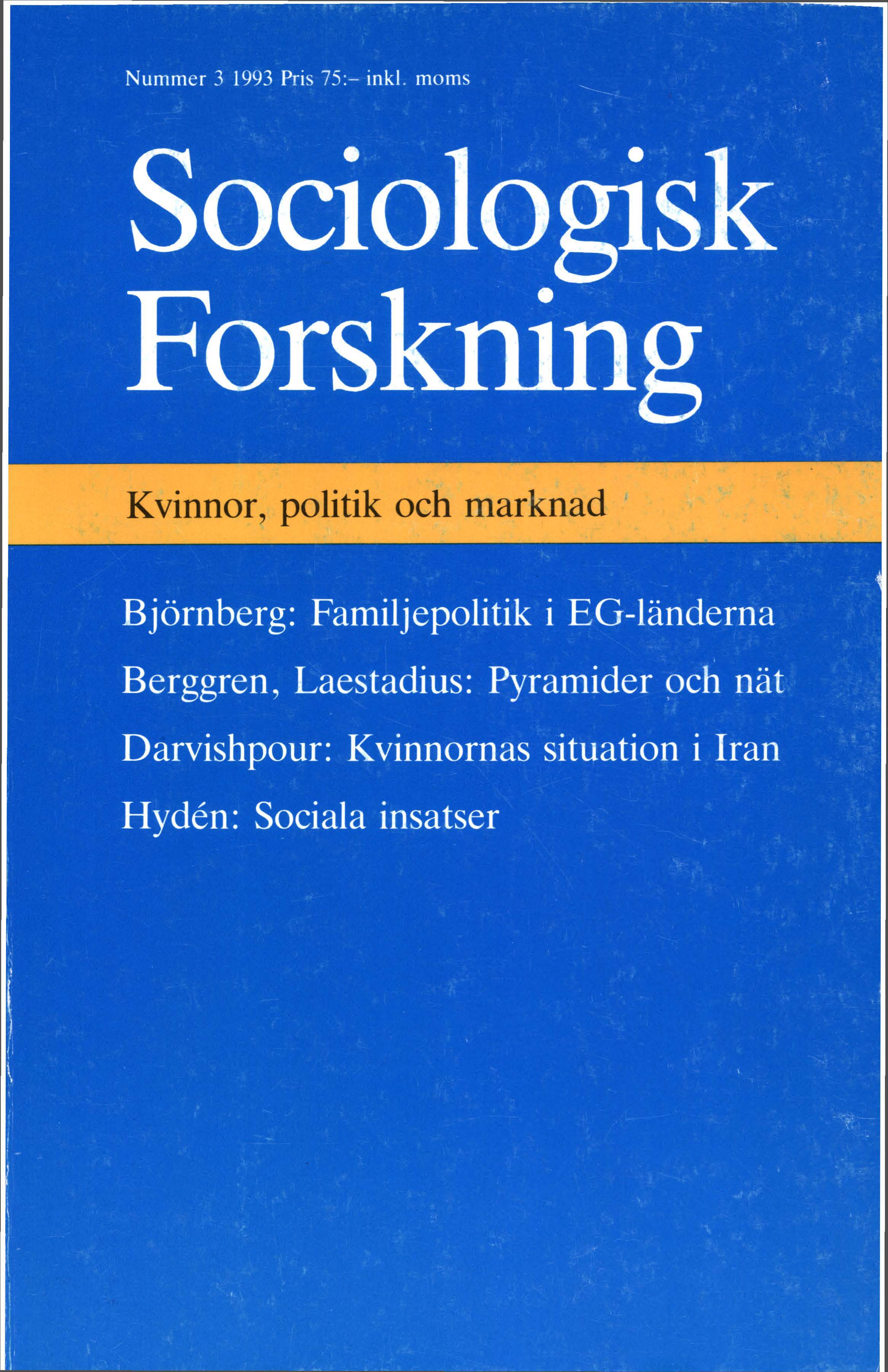Pyramider eller horisontella nät? Kreativitet, kompetensutveckling och prestationskrav i olika slags industriella produktionssystem
DOI:
https://doi.org/10.37062/sf.30.18642Abstract
Pyramids or horisontal nets? Creativity, competence and performance in different types of production systems
In recent years, we have witnessed a marked increase in the international interest in industrial networks and in relations between manufacturers and suppliers. An important reason for this is the expansion of the Japanese automobile industry. This industry is organized into a huge structure of subcontractors, vertically related and dominated by demanding large-scale enterprises. An entirely different pattern can be found, especially in northern Italy, but also in southern Germany and in Denmark, where enterprises form horisontal networks. In these geographically dense areas, small and medium-sized firms both cooperate and compete intensely. The respective roles of suppliers and manufacturer are diffuse, social mobility is high and the development of new products rapid. Swedish research on working life has tended to focus on processes within firms and public administration. Industrial structure has largely been accepted as given, while its effects on competence and performance has been neglected areas of research. In this article a research project is presented, which aims at investigating the effects of industrial structure on the developmental potential of, and work conditions in, firms. Our intention is to study vertical pyramids, especially in the automobile industry, and horisontal networks in, for instance, the sailing-boat industry. A central problem concern the effects of different types of industry on creativity and scope for action in small and medium-sized companies.
Downloads
Publicerad
Referera så här
Nummer
Sektion
Licens
Allt material i Sociologisk Forskning publiceras med omedelbar öppen tillgång (open access), under Creative Commons-licensen CC BY-NC-ND 4.0.
Allt innehåll i tidskriften är fritt tillgängligt utan kostnad och får för icke-kommersiella syften fritt läsas, laddas ned, kopieras, delas, skrivas ut och länkas. Innehållet får dock inte ändras. När innehållet används måste författare och källa anges. Upphovsrätten till innehållet tillhör respektive författare. Inga publiceringsavgifter tas ut.





